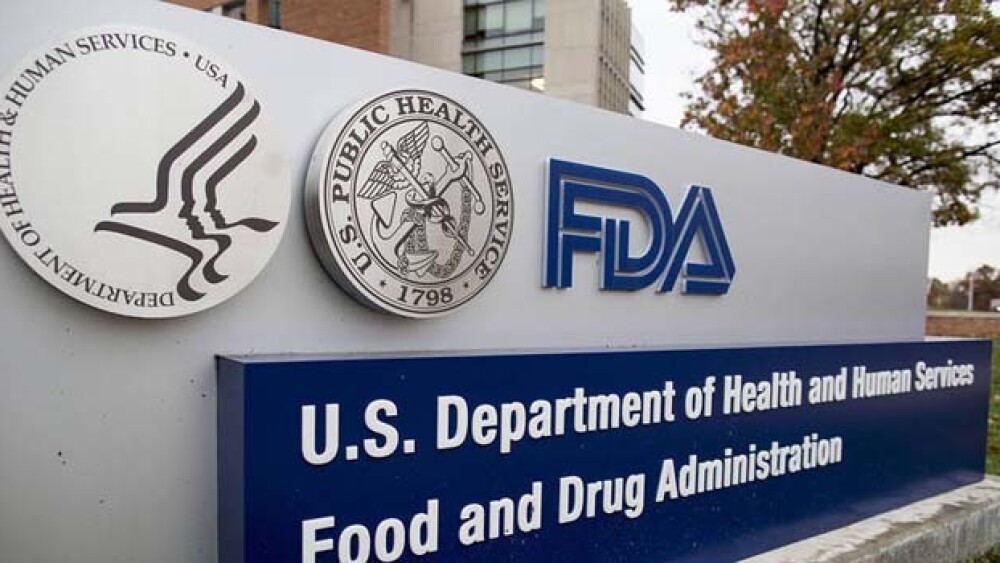The U.S. Food and Drug Administration (FDA) approved New York-based Progenics Pharmaceuticals’ New Drug Application (NDA) for Azedra for adult and pediatric patients 12 years and older with iobenguane scan positive, unresectable, locally advanced or metastatic pheochromocytoma or paraganglioma who require systemic anticancer therapy. It is the first and only therapy approved for these indications.
The U.S. Food and Drug Administration (FDA) approved New York-based Progenics Pharmaceuticals’ New Drug Application (NDA) for Azedra for adult and pediatric patients 12 years and older with iobenguane scan positive, unresectable, locally advanced or metastatic pheochromocytoma or paraganglioma who require systemic anticancer therapy. It is the first and only therapy approved for these indications.
The FDA approved the therapy on data from a pivotal Phase II open-label, multi-center trial conducted under a Special Protocol Assessment (SPA). In that trial, 17 of the 68 evaluable patients had a 50 percent or greater reduction of all antihypertensive drugs for at least six months, which was the primary endpoint. It also showed favorable results from key secondary endpoint looking at the proportion of patients with overall tumor responses measured by Response Evaluation Criteria in Solid Tumors (RECIST). Overall tumor response was achieved in 15 of the patients. Of the 15, 53 percent had durable tumor responses lasting six months or longer.
Azedra is a radiotherapy that uses a high, tightly targeted dose. The FDA had given it Orphan Drug, Fast Track and Breakthrough Therapy Designations.
It was only Friday that it was predicted that if the FDA approved Azedra, Progenics’ stock could double in value. That hasn’t happened quite yet, but it did jump from $7.32 at close yesterday to a current value of $8.31. John Engle, writing for Seeking Alpha, says, “The announcement came shortly before markets closed, sending the share price up 8.5 percent to $8.31 before trading was halted. The halt was maintained through the close, so the true price reaction will not happen until tomorrow. Considering that Progenics was trading at $8.36 in March when Cantor Fitzgerald announced a price target of $15, there should be healthy room to run. And with no red flags in the FDA’s statement, execution should get underway rapidly.”
The treatment has possible serious side effects, including risk from radiation exposure, bone marrow problems and other cancers, thyroid problems, and increased blood pressure, kidney problems, respiratory problems, and pregnancy and fertility risks.
Pheochromocytoma and paraganglioma are neuroendocrine cancers that come from adrenal gland cells. Both cancers come with a poor prognosis, including a five-year survival rate as low as 12 percent. Prior to this approval, there were no FDA-approved therapies for these cancers.
“Azedra is a true breakthrough in treating pheochromocytoma and paraganglioma delivering an effective anticancer therapy to these tumors,” said Daniel Pryma, associate professor of Radiology & Radiation Oncology and chief, Division of Nuclear Medicine & Clinical Molecular Imaging at the Perelman School of Medicine at the University of Pennsylvania, the trial’s lead investigator, in a statement. “With this innovative, rationally designed treatment, we finally have a therapeutic option that helps address patients’ needs.”
Because there is no competition and no other treatments for what is an ultra-orphan cancer therapy, pricing is expected to be high. Engle quotes from a previous research note, “While Progenics has not yet offered pricing guidance, it is clear it can command orphan-drug level pricing, i.e. six-figure prices. The exact figure will, of course, depend on market research that has yet to be disclosed, but even pricing it on the low side of similarly positioned orphan cancer therapies should net peak sales in the hundreds of millions of dollars for the pheo and para indication.”





